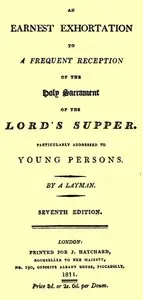"Plotinos: Complete Works, v. 2" by Plotinus is a philosophical treatise written in the early 3rd century. This volume contains the continued compilation of Plotinus's works, focusing on concepts central to Neoplatonism, such as the One, the nature of existence, and the relationship between the soul and the universe. The text is profound in its exploration of metaphysical questions, particularly regarding the essence of the soul and its omnipresence within the cosmos. The beginning of this work introduces critical philosophical inquiries into the nature of the universe and the soul. It contemplates whether the world-soul is entirely present in the world-body and discusses the idea that the soul fills all space while remaining indivisible. Additionally, the text challenges the reader to consider how existence and essence differ across beings, presenting several metaphysical propositions regarding unity, potentiality, and actuality. Through these dense philosophical explorations, Plotinus lays the groundwork for understanding the interconnectedness of all existence and the divine principles that underlie the material world. (This is an automatically generated summary.)

Plotinos: Complete Works, v. 2 In Chronological Order, Grouped in Four Periods
By Plotinus
"Plotinos: Complete Works, v. 2" by Plotinus is a philosophical treatise written in the early 3rd century. This volume contains the continued compilat...
Plotinus was a Greek Platonist philosopher, born and raised in Roman Egypt. Plotinus is regarded by modern scholarship as the founder of Neoplatonism. His teacher was the self-taught philosopher Ammonius Saccas, who belonged to the Platonic tradition. Historians of the 19th century invented the term "neoplatonism" and applied it to refer to Plotinus and his philosophy, which was vastly influential during late antiquity, the Middle Ages, and the Renaissance. Much of the biographical information about Plotinus comes from Porphyry's preface to his edition of Plotinus' most notable literary work, The Enneads. In his metaphysical writings, Plotinus described three fundamental principles: the One, the Intellect, and the Soul. His works have inspired centuries of pagan, Jewish, Christian, Gnostic, and early Islamic metaphysicians and mystics, including developing precepts that influence mainstream theological concepts within religions, such as his work on duality of the One in two metaphysical states.

















